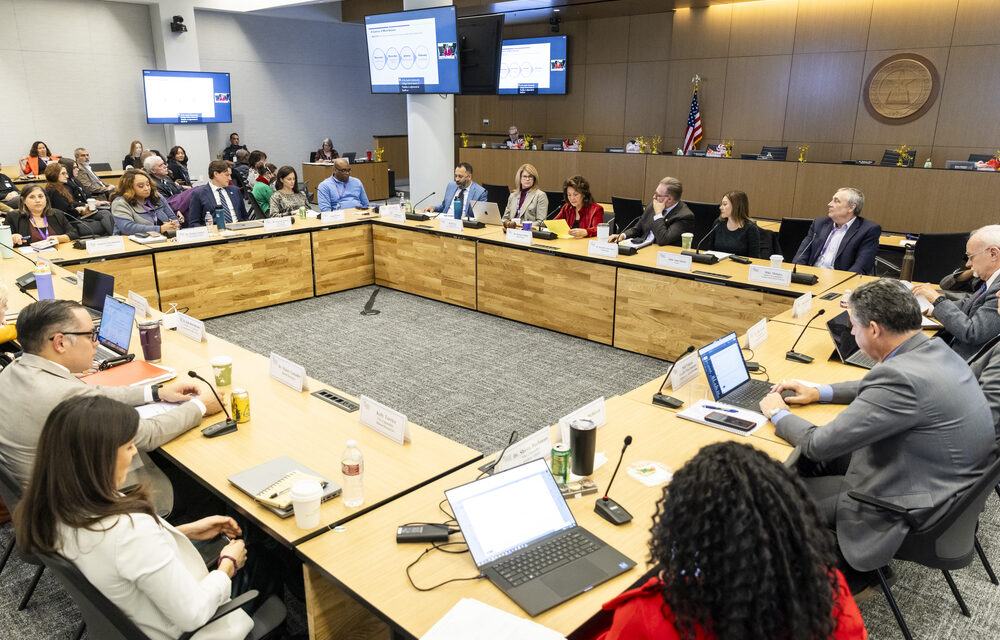High school seniors who graduate this spring could attend ACC for free starting fall 2024 according to a new proposal presented to the Board of Trustees on Monday, January 8.
In a bid to make college more affordable, ACC Chancellor, Dr. Russell Lowery-Hart presented a preliminary proposal during the Board’s special work session. The plan includes free tuition for all 2024 graduating high school seniors in the ACC service area.
The Chancellor worked with the college’s Budget and Institutional Research offices to develop the initial proposal to the board to ensure confidence in the finances required for the proposal, and the initial enrollment projections supporting that budget analysis.
The program is a “first dollar” program — meaning the funds from ACC would be the first dollars students would receive to help cover the costs of college. Students would still be able to apply for Pell grants, financial aid, and scholarships to get additional financial support to help cover other expenses like housing, child care, textbooks, and more.
“I think this could be one of the most unique and profound college promise programs in the country,” says Dr. Lowery-Hart. “It allows the scholarships that we have already to go further and extend their impact.”
What’s Included:
- Fund $85 per credit hour for up to 3 years
- $67 Resident Tuition
- $15 General Fee
- $2 Success Fee
- $1 Sustainability Fee
What’s Not Included:
- Out-of-District Fee (currently $201/SCH)
- Non-Residents/International Students
- Any Course/Program Specific Fees
- Textbooks
Under the program, all high school seniors in the service area who graduate in spring 2024 would have the benefits for a three-year timeframe from the date of their high school graduation to help them work toward completing their associate degree. Those who continue on at ACC to pursue a bachelor’s degree would receive two additional years of tuition support.
Why does it matter?
According to data shared with Trustees at the work session, approximately 12,000 students didn’t attend any type of higher education in the state after graduating high school in 2023, and those numbers have been growing year to year.
How is it funded?
Funds for the proposed program are already available within the college’s annual budget. The state appropriations received through House Bill 8 would be used to help fund college programs and expenses, which will ultimately free up dollars to help cover the costs of tuition for these students.
If approved, the college hopes to expand the pilot program to more student populations in the future.
“This community has the resources and the innovation to redefine higher education. I think this is the first conversation to that end goal. We can make ACC a national model,” says Dr. Lowery-Hart.
Next Steps
Following the Board Work Session, the Cabinet began deeper discussions to identify the next steps. These include the development of special work teams comprised of key stakeholders and experts who will work together to develop a formal plan and recommendation for the board.
“This is the first conversation to our end goal of making college a reality for everyone,” says Dr. Lowery-Hart. “We have to work together to identify and understand our challenges and opportunities.”
The college expects to present the formal plan to the Board in February.

